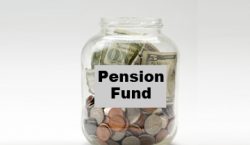



While some may believe it is better to ignore your feelings and push through, this builds up unhealthy blockages.
AS you know, life can be emotionally distressing. You’re sensitive, you can sense the people around you. You’ve been blessed or cursed with this uncanny ability to feel. You feel that your extrasensory perception gives you more information about your environment. You’re keen on how other people feel about you. Is it better to be mentally strong or emotionally strong? Perhaps emotional strength is a prerequisite of mental strength. Emotions strike an evocative chord within you, one that you could not control without mental strength.
While some may believe it is better to ignore your feelings and push through, this builds up unhealthy blockages. Crying when in distress is a sign of strength, authenticity, and being in tune with yourself. It’s far more damaging to let the tears build up and suddenly unleash on the wrong person.
You don’t care how the world perceives your tears, they’re necessary. The emotional release of crying lets the negative emotions fly free. People who cry and get back to work have the wisdom that emotions can overtake you if you let them. This wisdom lets emotional people know that crying is necessary to free up emotional and mental space that you could be using for happiness and productivity.
Being so in touch with your state of emotion gives you quick access to your anger too. What does this really mean? Emotional people have to have more mental strength than the average individual. Your rushing waters of anger can quickly become a tsunami, but you control the tide.
According to a study of the broaden-and-build theory of Barbara Fredrickson, positive emotions allow you to build more personal resources due to expanding your cognition and attention. You have the mental discipline to decide in an instant whether this intense energy will be destructive or creative. What kind of mental powerhouse converts fury into positive action? You, the master of your emotional physiology.
Sometimes you walk into a room and feel the air electrified with emotions. You can feel the ones who are intensely working, strained, happy, and peaceful. Some people may notice your uncanny ability to “read people.” You simply sense the emotions of others because you feel them yourself.
You feel compassion in the highest degree. This level of empathy requires more mental strength to not absorb the negativity of others. The fact that you’re emotionally adept benefits your relationships because you’re able to understand other people better. Those who don’t understand emotionality may think you would cry over spilled milk; this isn’t the case. You have the mental discipline to differentiate between when someone else’s emotions will affect you and when they absolutely will not.
Just because you have highly sensitive emotions does not mean you are high strung. You know how to relax and have fun just as much as anyone else. Emotional people who are self aware may have an air of maturity not to be confused with seriousness. Socially, you’re not on the hunt for comments to be offended by.
The fact that emotionally sensitive people savor happy moments actually increases their emotional strength according to a study conducted at the University of North Carolina at Chapel Hill. It was shown that those who harness the power of positive emotions have more life satisfaction and are more resilient.
You’re sensitive but you know how to keep your emotions in check. You don’t let your high sensitivity weaken your relationships. You use your powers for good by tuning into the emotions of others so you can further understand their thinking, lifestyle, opinions, and so much more.
Everyone should take the time to understand that emotionally sensitive people use a great deal of mental strength. You have to keep your own emotions from going haywire. You also have to protect yourself from the barrage of emotions you feel around you. When in distress, you may be the first to cry, but you’ll also be the first to take the next step forward. By Katana Haley
www.lifehack.org
Follow us on Twitter @FingazLive and on Facebook – The Financial Gazette